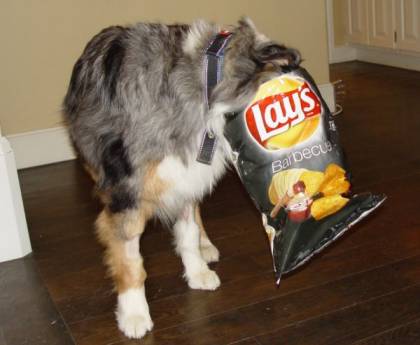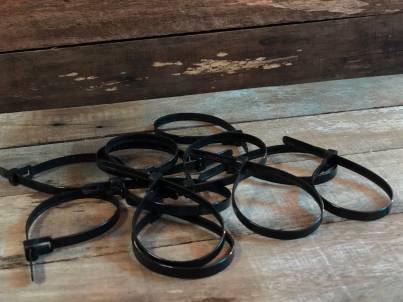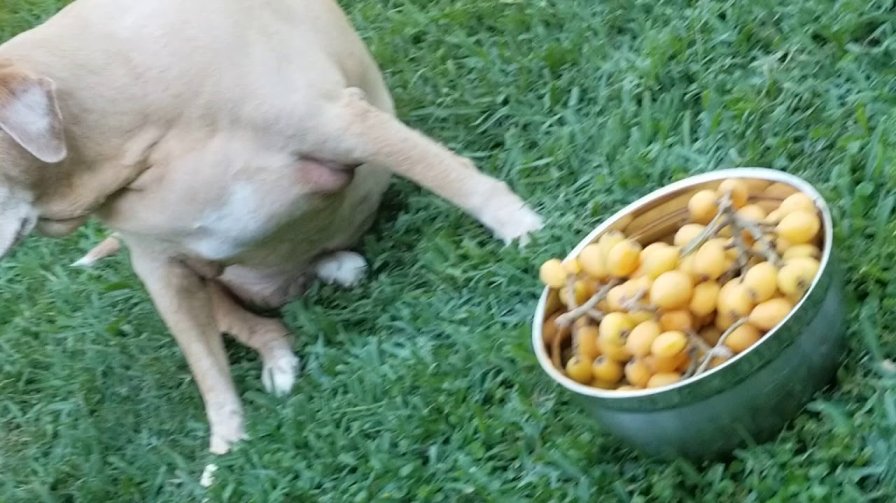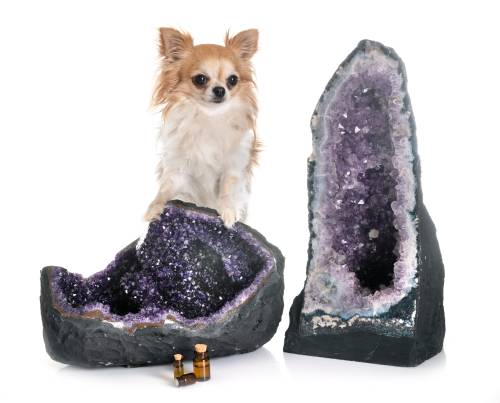Connect with a verified veterinarian in minutes. Licensed vets are available 24/7 to answer your questions. No need to worry about your furry family member.
Has your dog eaten Lays Chips? Are you worried the Lays Chips will make your dog sick? If so, then you’ve come to the right place!
In this article, we’ll take a look at what Lays Chips are and whether or not they can make your dog sick. Let’s get started!
The Different Types of Chips
Doritos, Cheetos, and Lays are all types of chips. They come in many flavors, including salt and vinegar, sour cream and onion, and barbecue. There are also different shapes and sizes of chips. These junk food snacks are usually made from corn, oil, and salt. They are often fried and have a very high calorie content.
Most people think of chips as a healthy snack, but that’s not always the case. Chips can be high in calories and unhealthy fats. They also contain chemicals that can be harmful to your health.
Some of the most common chemicals in chips include BPA, which is a hormone-disrupting chemical, and artificial flavors, which can be harmful to your health. Crisps and other junk food snacks are also high in sugar, which can be harmful to your health. The nutritional value of chips is often low, and they are a poor source of nutrients.
What are Lays Chips?
Lays Chips are a brand of potato chips that are extremely popular! The chips come in a wide range of flavors and have been around for over 75 years. They were first developed by Herman W. Lay in 1932 and were sold from the back of his car! He was a traveling salesman at the time. The Lays company merged with Fritos in 1961 to become the Frito-Lay Company.
Lays Classic chips contain the following ingredients:
- Potatoes
- Vegetable oil (sunflower, corn, and/or canola oil)
- Salt
Other varieties of the chips may contain other ingredients and spices, depending on the flavoring.
So, are Lays chips bad for dogs?

Review symptoms, medications & behavior to keep your pets healthy with a Vet Online in just minutes.
Ask a Vet Live NowLays Chips & Dogs
The good news is that Lays chips are not toxic for dogs unless they contain garlic, onion, or other ingredients that are toxic to dogs. The original chips are not flavored and not toxic to canines. However, they’re also not a healthy option for dogs.
The problem with Lays chips is that they’re high in fat and salt, both of which can cause health problems in dogs.
Salty foods and salty snacks are popular among dogs. Dogs might prefer snacks with a high salt content, but these snacks can be harmful to your dog if they are not consumed in moderation. Sodium ion poisoning can occur when a dog consumes too much salt. Symptoms of sodium ion poisoning include vomiting, diarrhea, and lethargy. Urination and defecation can also be signs that your dog has consumed too much salt. If you notice these signs, call your veterinarian.
If your dog eats one or two potato chips, chances are he will be just fine. However, if your dog eats more Lays chips, there’s a chance he could develop these symptoms:
- Stomachache
- Nausea
- Vomiting
- Diarrhea
- Flatulence
- Lethargy
- Dehydration
In most cases, the symptoms should last no longer than 24 hours. If they do, or other symptoms develop, and you’re worried, then be sure to call the vet for advice. Diarrhea and vomiting that are severe and/or that last longer than 24 hours can seriously dehydrate your canine companion.
For these reasons, it’s best not to give your dog Lays chips and keep them stored where your fur baby can’t gain access to them.
Obesity is a major health problem in dogs, and fat and salt can contribute to obesity. Fatty liver disease is also a common problem in dogs, and high levels of fat and salt can increase the risk of developing this condition.
Pancreatitis is a serious condition that can be caused by high levels of fat and salt in the diet. Pancreatitis is a condition that affects the pancreas, and it can lead to death.
Doritos are not as bad as Lays chips for dogs, but they’re still not a good option. Doritos are high in fat and salt, and these ingredients can cause health problems in dogs.
Dogs are susceptible to heart disease, and high levels of fat and salt can increase the risk of developing this condition. Salt poisoning is also a serious problem in dogs, and high levels of salt can cause health problems.
A bag of potato chips is usually high in calories and unhealthy fats, and it’s also a poor source of nutrients. These are dangerous foods for your dog, and they should not be consumed in large amounts.
Especially first time dog owners, it is important to be aware of the different types of chips and what they contain. Chips might cause the blood sugar level of your dog to spike, and this can be dangerous. Junk food snacks are not a good option for your dog, and they should be avoided. Your dog’s diet should consist of healthy foods, and chips are not one of those foods.
A dog’s stomach is not as efficient as a human’s, so they can’t digest fat and salt as well as humans can. This means that dogs can get sick from eating too many Lays chips.
Instead of potato chips, you may want to consider giving your dog healthier snacks. And if you do give your dog chips, make sure it’s not more than one or two. More could make him sick, and you’ll both regret that!
And remember, always call the vet if your dog develops any concerning symptoms. The vet will be the best one to offer advice on what you need to do to help your dog feel better.
Can My Dog Eat Homemade Chips?
Homemade chips are not a healthy option for dogs, either. Homemade chips are high in fat and calories, and they can be harmful to your dog’s health. Homemade chips are also a source of unhealthy fats, which can lead to weight gain in dogs. Some health issues that can occur as a result of eating homemade chips include heart disease and obesity.
Raw potatoes and sweet potatoes are a better option for dogs, because they are low in fat and calories. These vegetables also contain vitamins and minerals that can be beneficial to your dog’s health. Avocados are a good option for dogs, too, because they are high in healthy fats and contain few calories. Your furry friend will love the taste of avocado fries, and they’ll be a healthy snack that your dog will love.
Human food and dog food are not the same. Dogs should not be eating human food, like industrial chips or homemade chips. These snacks are not healthy for them and can lead to health problems. The carbohydrates in these snacks are also a source of sugar, which can be harmful to dogs’ teeth. Your pooch would be better off eating a healthy snack, like a piece of fruit or a kibble.
Conclusion
Pet owners should be aware that not all types of foods are healthy for their dogs. The theobromine in chocolate can be harmful to dogs, as can caffeine. Some types of fruits and vegetables can also be harmful to dogs if they are not consumed in moderation. Chips are a type of food that can be harmful to your dog if he consumes too many. The side effects of consuming too many chips can include obesity, heart disease, and type II diabetes.
The xylitol in some types of chips can also be harmful to dogs. Xylitol is a sugar substitute that is often used in low-calorie foods and snacks. It can be harmful to dogs if they consume too much xylitol. Pet foods that contain xylitol should be labeled as such.
Connect with a verified veterinarian in minutes. Licensed vets are available 24/7 to answer your questions. No need to worry about your furry family member.

Julie
Julie is a graduate of the University of North Carolina, Wilmington, where she studied Animal science. Though contrary to the opinion of her parents she was meant to study pharmacy, but she was in love with animals especially cats. Julie currently works in an animal research institute (NGO) in California and loves spending quality time with her little cat. She has the passion for making research about animals, how they survive, their way of life among others and publishes it. Julie is also happily married with two kids.
Review symptoms, medications & behavior to keep your pets healthy with a Vet Online in just minutes.
Ask a Vet Live Now





